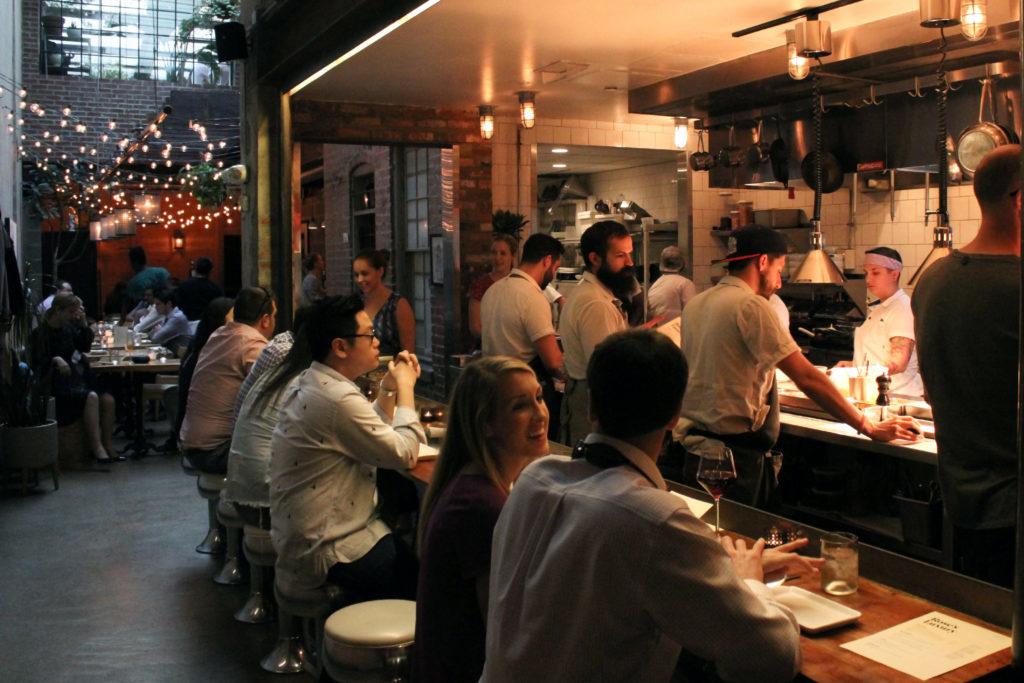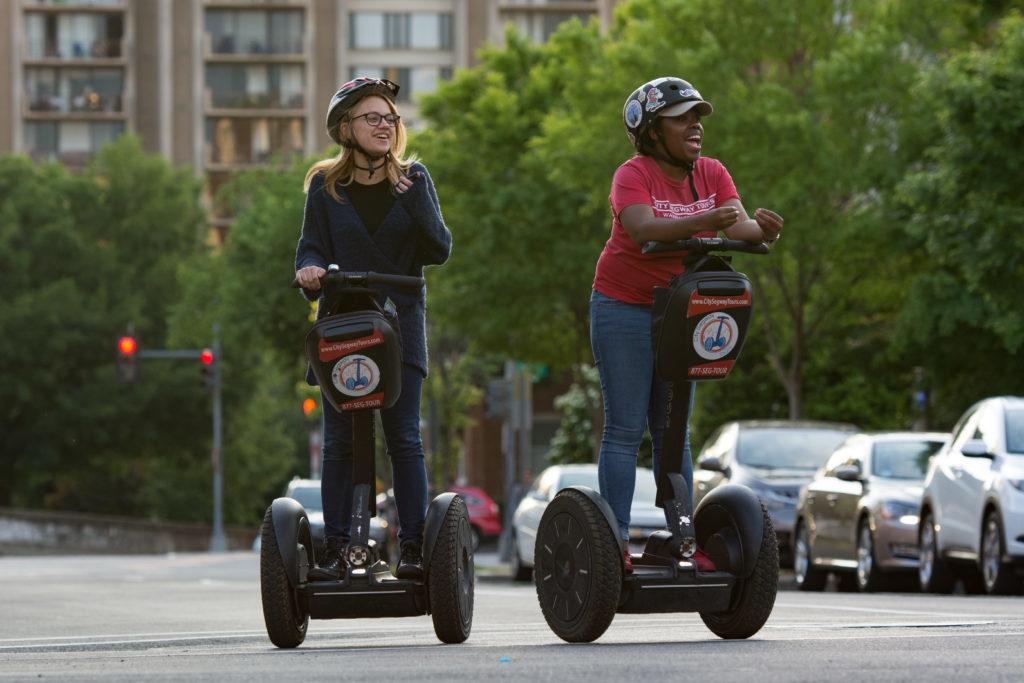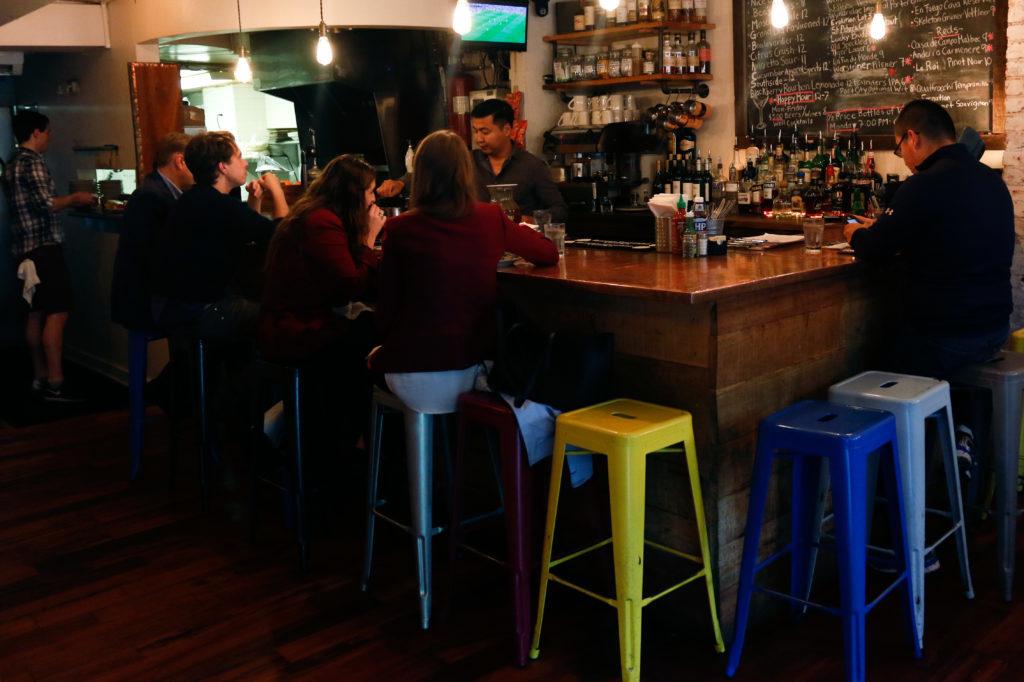As graduates walk across the stage at commencement ceremonies this week, they’ll likely feel a mix of excitement, relief and maybe even a feeling of impending doom.
No matter what your post-graduation plans are, the best advice is given from those who have already walked across the same stage at graduation.
Here’s some advice from GW alumni from each school who landed jobs they love:
Be open to changing paths
Graduates with liberal arts degrees are often plagued with questions about how they’ll utilize their diploma once they move their tassel to the other side of their cap. For Columbian College of Arts and Sciences alumnus Troy Gibb, who graduated in 2014 with a bachelor’s degree in philosophy and a minor in music, that question didn’t scare him – it gave him freedom in his career path.
When Gibb arrived at GW, he’d planned to go to law school. After graduation and countless hours of LSAT prep, he decided the path wasn’t right for him and began taking online coding classes. Those classes led him to his current job as a web applications engineer for Tesla’s solar energy branch.
Although his dream in college was to be an environmental lawyer, Gibb said at Tesla he found a way to continue his passion for the environment even after making the bold career switch.
“Realness resonates with people,” Gibb said. “It’s really risky to go in an unforeseen direction, but it’s worth it if you’re passionate about what you’re going to do.”
Stay connected with your peers
Avi Gupta is the photography director at U.S. News and World Report and an adjunct professor of photojournalism in the Corcoran School of Arts and Design, the institution he graduated from in 2004 before it became part of GW.
Gupta, who was among the first graduates of Corcoran’s photojournalism program, said small class sizes gave him the feedback he needed to jumpstart his career as a photographer.
Gupta said he stays in touch with his peers and still relies on many people he graduated with for feedback on his exhibitions.
“Everyone has some help along the way, whether it be from family, faculty or your fellow peers,” Gupta said. “When you have the opportunity, I implore you to give back.”
Be ready to work hard in graduate school
If you’ve decided to pursue another degree instead of immediately entering the workforce, then it might help to hear from School of Business Alumna Kimberly Koperski, who was in the same position when she graduated last May.
Koperski graduated with a degree in accounting and returned this year to earn a master’s in accounting. Now, she will take the summer off before joining accounting firm KPMG, as a federal audit associate, in the fall.
For students headed to graduate school, Koperski said participation is key and keeping up with readings is more important than as an undergraduate.
“It’s kind of a sink or swim,” she said. “Graduate school is fun, but you’re studying a lot more and the classes are more demanding.”
Don’t stress if you don’t have a job offer
After graduating from the Elliott School of International Affairs last year, alumna Rozzie Kopczynski said she worked a few temporary jobs before landing the job she wanted.
Now Kopczynski works in development and business operations for Girl Scouts of Nation’s Capital as an administrative assistant, which means she solicits donations and evaluates the efficiency of the non-profit organization.
For graduates who are walking across the stage at commencement without an offer letter, Kopczynski said to take a deep breath but work hard to ensure you find the job you’re looking for.
“Give yourself a break about not having a job immediately, but set a schedule of how many jobs you want to apply for in a day or week,” she said. “Don’t worry if it feels like it’s taking forever to get an interview.”
Don’t be afraid of the non-traditional route
Not everyone fits into the expected occupations for their majors. School of Engineering and Applied Sciences Alumna Nicole Messier, who graduated in 2011 with a bachelor’s degree in mechanical engineering and a concentration in aerospace engineering, decided to step away from the typical engineer career.
After working in traditional engineering jobs, she headed to New York City to get a master of fine arts degree in technology and design from Parson’s School of Design.
Messier’s thesis project at Parson’s fused crafts with engineering concepts, like circuit theory, to spark kids’ interest in science-related fields. Messier later turned her project into a business, called ‘blink blink,’ which sells creative circuit kits online to kids.
“I think my education as an engineer taught me problem solving and how to break things down into discrete problems,” she said. “It’s okay not to take the typical engineering path.”
Create your own job
School of Media and Public Affairs Alumna Samantha Gordon graduated with a degree in journalism and mass communication last year and landed a job as a marketing associate for the Shakespeare Theatre of New Jersey one month later. Gordon said that she knew that the company was looking to delve into the digital world of marketing, so she contacted them with her own job description in hopes of being hired.
Gordon said that her education in SMPA taught her to be a “one-man shop” by having multiple skill sets, including time management and professionalism. Her do-it-all attitude allowed her to convince her current employer that she would be an asset to their team.
“It’s a challenge, but be willing to put your name out there,” she said.
Get real life experience before heading back to school
When Milken Institute School of Public Health Alumna Katie Ogden graduated in 2013 with a Bachelor of Science in Public Health, she knew she wanted to stay in D.C. and gain experience before working toward a higher degree. After working at the American College of Obstetricians and Gynecologists for three years, she headed to Johns Hopkins University to get a master’s degree in public health.
Ogden said her time working in the field helped her confirm her career interests and that graduates shouldn’t be afraid to wait before continuing their education.
“For students who are a little uncertain on what to do next, get a little life experience and then figure out what you can do,” she said.




